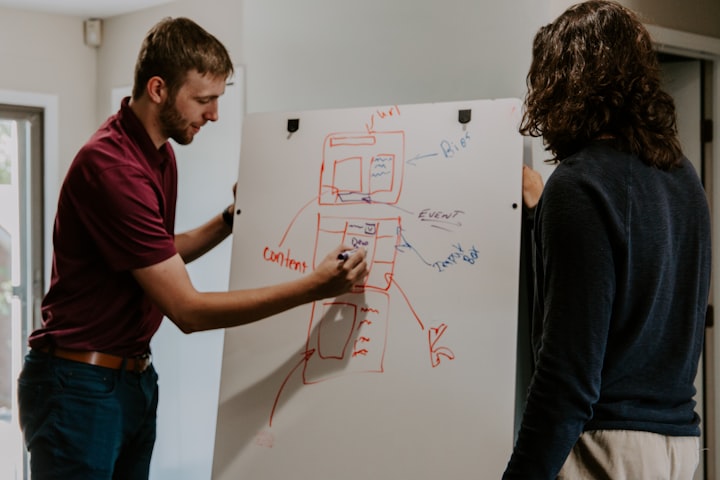Data Aggregation and Analysis during Drug Development: Causaly
A data-driven startup for biomedical research discovery
A biomedical research discovery tool that makes it simple to find and explore key hidden evidence
Causaly Inc (London UK, 2017) offers a semantic AI-platform which reads collections of scientific articles and extracts causal associations through linguistic and statistical models dealing with THE MOST difficult biomedical challenge: increase productivity in literature reviews.
Every month something like 100,000 biomedical articles are added to the over 30+ million already published, which makes it almost impossible (apart time-consuming and inefficient) to try to decipher key relationships and find emerging discoveries in the vast data ocean of biomedical research.
The search engine for these biomedical articles is PubMed that provides access to MEDLINE, the database that contains bibliographic information on more than 30 million articles (more than 122,305,477,309 bytes, thus requiring 122.3 GB disk space, 16.9 GB compressed as of 2016) in approximately 30,000 records (28100 peer-reviewed journals in English language and 6450 in other languages as of 2014 link), including full text for some 4 million of these articles.
On an average working day, approximately 2.5 million users from around the world access PubMed to perform something like 3 million searches and 9 million page views per day.
So, while it would impossible for a human being to read the entire volume of articles published so far, on the other hand Causaly’s AI reads the entire volume of biomedical literature ever published in seconds! In this way, Casualy allows anyone to run deep searches and finds the answers to complex research questions that would have previously taken weeks, or even months or years to find with traditional keyword search.
In particular, Causaly’s AI is reading and understanding biomedical literature similarly to how humans do, but apart Biomedical Literature a variety of other data sources including Clinicaltrials.gov, Patents, FDA labels and several side effect databases are machine-read and integrated in Causaly's Knowledge Graph.
Moreover, customers can integrate their own content to benefit from evidence in existing knowledge information systems. All evidence is represented as a cause-effect network operating in a Graph database, and can be queried and explored through a defined REST API (also known as RESTful API, is an application programming interface - API or web API- that conforms to the constraints of REST architectural style and allows for interaction with RESTful web services. REST stands for representational state transfer and was created by computer scientist Roy Fielding).
👉🏻 Let's see now why Causaly' AI is importat for doing a PubMed search.
If you are studying for example breast cancer then you will have to read in total something like 431,537 papers on PubMed. Let’s now hypothesise that:
- you need 1hr to read one scientific paper and that you are very sharp and intelligent — meaning you just need to read things once —
- and you read on average 12 hrs per day.
Then, you will need roughly 95 years only to read everything that has been published about breast cancer on Pubmed (and not considering the additional information added on Pubmed during the 95 years of active reading) and then eventually — after the 95 years and considering you are still alive — design a strategy for your drug development process. Not to mention, that you will need to access a lot of papers behind a paywall so the cost quickly adds...
Obliviously, this scenario is at the limits of an impossible mission — in fact only Yoda and Methuselah have reportedly lived roughly 900 years old each (link). And even if you move in Japan and you adopt their workaholic culture and hopefully avoid “karoshi” — working yourself to death — then again you will need to start reading papers from the age of ten just to be able to read your 415,124 papers on PubMed before you die as a centenarian. And actually it gets more complicated when you have to read the 4,309,060 papers published on PubMed (as of 20 August 2020) about cancer in general!
Hopefully, Causaly's AI can do this for you now, only in seconds! Plus, can find more efficiently hidden associations inside millions of scientific papers.
For example, in a "Causaly vs PubMed" drug safety assessment debate researchers concluded that Causaly's AI finds 2x as many articles, including all the PubMed articles and more relevant results, using its advanced machine-reading technology (Causaly's Blog).
In another "Full-text vs Abstract" debate Causaly have identified 3x as many relevant articles by machine-reading the full-text. Usually, a PubMed search considers abstracts and indexed MeSH terms (Medical Subject Headings: the NLM controlled vocabulary thesaurus used for indexing articles for PubMed) but not full-text articles. However, detailed results are predominantly reported in full-text articles and can be easily missed when relying only on abstracts. So, the potential of Causaly's machine-reading full-text articles addresses the human challenge of limited time and can facilitate the identification of most relevant evidence (Causaly's Blog).
👉🏻Few words about the founders now.
The company was co-founded by automation expert Artur Saudabayev and computer scientist and language enthusiast Yiannis Kiachopoulos, that believe that by applying ML to the world’s scientific literature, they could radically transform the rate of biomedical discovery and progress.
Yiannis is a computer scientist and language enthusiast, and has consulted with the world’s largest companies for more than 10 years. Yiannis holds a Bachelor and Master in Computer Science, an MBA from Hong Kong University of Science and Technology and took part in Singularity University’s Future Studies program. And Artur is a computer scientist and intelligent systems expert, with a background in ML and bioinformatics. For 7 years Artur was working in academia on applications of ML for vision and language problems in Robotics. Soon after attending Singularity University Future Studies and getting his Master degree in the University of Edinburgh, Artur taught his last course and started building Causaly with Yiannis.
Right now, Causaly is working with several pharma and biotech companies, including Novartis, as well as with hospitals and academia. They have raised a total of $6M and they are funded by 7 investors: European Bank for Reconstruction and Development, Pentech Ventures, Marathon Venture Capital, Matt Clifford, Charlie Songhurst, Emerge Education, Nadav Rosenberg, Marathon Venture Capital.
Finally, Causaly has just announced that they will be partnering with UCL Innovation & Enterprise in the UK, to help advance their ongoing research into COVID-19, to identify and understand biomedical connections hidden in millions of publications.
Thank you for reading 👓💙
And if you liked this post why not share it?
#science #health #pharma #drugdiscovery #drugdevelopment #AI
👉🏻References
Marathon Venture Capital: Causaly







Comments
There are no comments for this story
Be the first to respond and start the conversation.